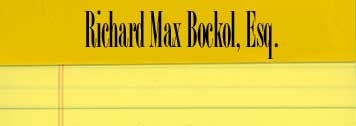Victoria Cruises' | ||
| Yangtze River Voyage One baby boy, corpulently bejowled, with fatty globules perspiring from his forehead, jerks his fitful obese body, and screams at a pitch heard by dogs thirty-thousand feet below our Air China flight to Shanghai. He belches on his mother's shoulder and slaps at her ears with clenched fists. "He's an only child," my new Chinese acquaintance, elderly and wise, whispers across the aisle separating us. "The government's rule: one per family; so he is a king." My neighborly passenger shrugs, emoting disfavor. Meanwhile, the mother maintains a smile and bounces the portly pre-person to her shoulder, even though she seems to weigh less than her heaving burden. She even runs fretfully to the plane's bathroom so as not to have the yelling infant bereft of her fawning facial expressions for more than a minute. And when she returns, she's out of breath. She grabs for her son with supererogatory joy. He'd been thrashing and bashing ever since His Highness' mother surprised Him by whispering in His ear that she'd have to wee-wee in the aircraft's extremely small toilet without Him. Eighteen hours with Ming the Merciless' cacophony awakens one to the portended perils of China. In twenty-five years these "only" children shall be China's leaders. Hong Kong may be but a toy for all these precocious Panchen Lamas. Another hour's flight on South China Air brings me to my anticipated destination, Wuhan, the soot-ridden site from which one departs for a cruise up the Yangtze. I board the 150 passenger Victoria I in complete darkness, descending slippery narrow concrete steps toward its docked position without light or assistance. "Perhaps the staff is on board preparing tea and cakes, dumplings and after-dinner drinks," I muse. Yet upon alighting onto the boat, I smell only laundry soap, disinfectant and the dank dampness of wet wood under carpets. "WELCOME ABOARD!," reads the Captain's brochure in our tidy cabin with a window as large as a movie screen. "My staff and I are pleased to welcome you on our new luxury vessel in its inaugural year." The shebang of a boat, however, looks as if it has been at least ten arduous years in service. The rugs are splattered and separating at seams. Paneling is beginning to droop dramatically. The "fitness center" is no more than a broken treadmill, a shockingly old bicycle and a rusty pedaling contraption that emits groans louder than yours as you strain to move its gears. One's cabin is perfectly neat and clean, but the shower stall is also your bathroom. Its dual purpose is made possible by a plastic curtain between shower rod and toilet seat, and the slant of the floor which brings all excess water to open drains along the walls. Even the sink's drainage burbles around the room until it "flushes" by gravity through the open hole at the lowest point in the floor. I head for the bar and ask for Beijing Beer. "We're out of beer, sir," I am told. Frankly, I don't care; I am on the finest cruise available on the Yangtze, the third longest river in the world. Steering southwest, Victoria I passes traffic consisting of dilapidated Chinese passenger ferries, coal barges, sampans and junks, cargo carriers brimming with oranges or rice, and an occasional modern cylindrical speedy water-taxi. The chilly city of Yue Yang is the first stop. Soldiers in sneakers abound. Men and women in dark green uniforms have come to the Pagoda Tower, here to see Mao's handwritten poem enclosed within its walls. The former Chairman (allegedly glassy-eyed from a yen for rice wine) speaks of mystical fogs which cause him to view the complete convergence of lake and sky until the horizon is heavenly. And so it is, azure onto blue that day from the Pagoda overlooking Dong Ting Lake. The Three Gorges lie ahead, the site of China's most questioned undertaking, a new dam which will be twice as grand as any other on earth. The costs shall be (1) a shattered public budget, (2) the relocation of millions from their homes, (3) the flooding of the Three Gorges (inundating cities and towns), forever eliminating the sight of these gorgeous gorges. Gone will be the imaginative nomenclature for topographic rock formations currently "seen" by the Chinese: The Gorge of the Sword and Book On the Art of War, the Gorge of the Ox's Liver and The Horse S'Lung, The Shadow-Play Gorge and Goddess Peak. All will be devoured in the name of The Need For Electricity. The views along the brown Yangtze's shoreline are presently stunning. In between the skyscraping, jutting cliffs are farms marked by miles of precipitously terraced and tiered plantings. Wherever rocks stop, strip-farming begins. Huge waterbuffalo prowl thousands of acres of verdant fields. A million small families tend to chickens and pigs, or water the crops. They manage oxen, tilling in rows from daylight to sunset. And in between the farms are smoke-puffing mills and factories. Horrendous coal shanties appear replete with conglomerates of men, yoked to over-the-shoulder bags, walking in long elliptical footpaths as they first fill and then empty the bags onto cargo hulls. Shore excursions to Wushan (to sampan along the Daning River's Lesser Gorges), to soon to-be immersed Fengdu (a "ghost" city whose ghouls are now taking underwater swimming lessons) and to Chongqing (China's World War II headquarters) complete the adventure. I've traversed over 800 nautical miles and waved to at least a few hundred thousand people, almost none of whom reciprocated. Victoria I's staff has infrequent forays with English. Nevertheless, the men and women are young, bright and always well-intended. The meals are pursued via buffet at breakfast and lunch, and by extremely Lazy Susan at dinner. No meal is memorable but for the overall consistency of clean, plentiful white rice. Overly oiled greens abound. The dearth of anything lean is favored. Fish and chicken with more bones than flesh are never in anatomical short supply. Huge varieties of soups through which anything flavorful seems to have tiptoed, are served last. IN CAUDA VENENUM (This article was written in 1996.) | ||
| Copyright 2004 Richard Max Bockol, Esq. | Back | |


